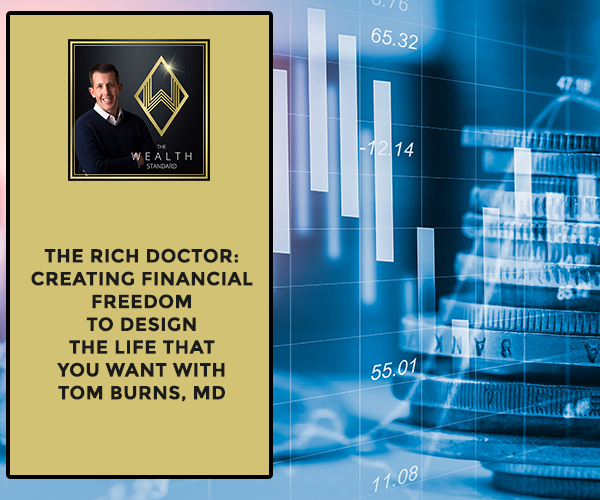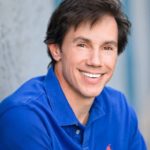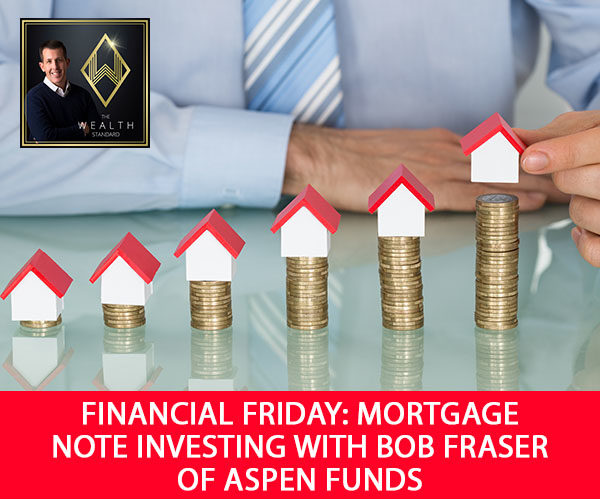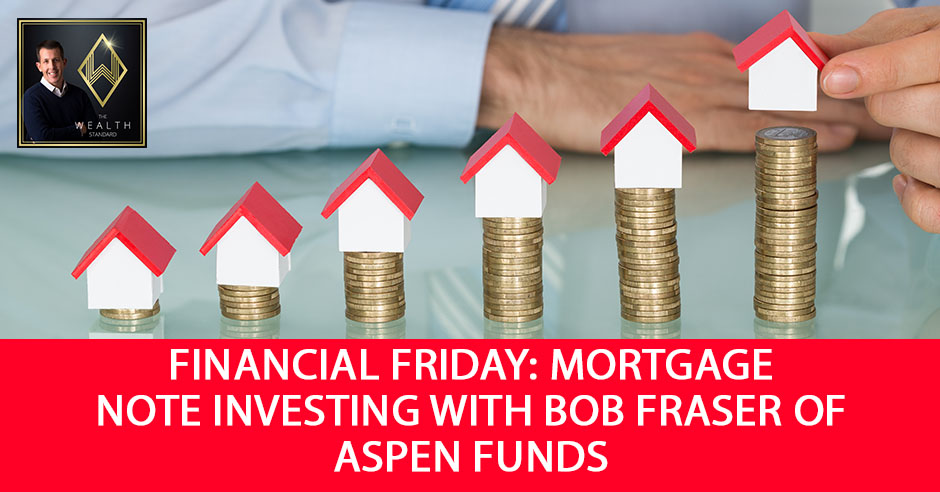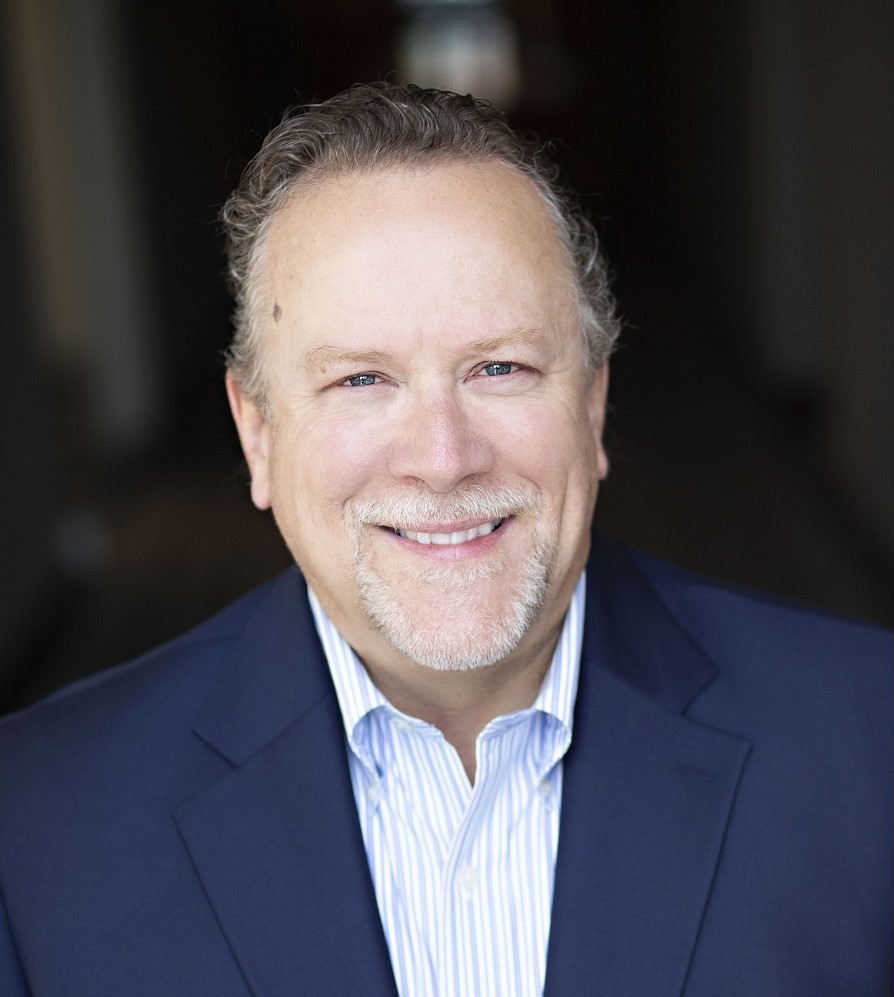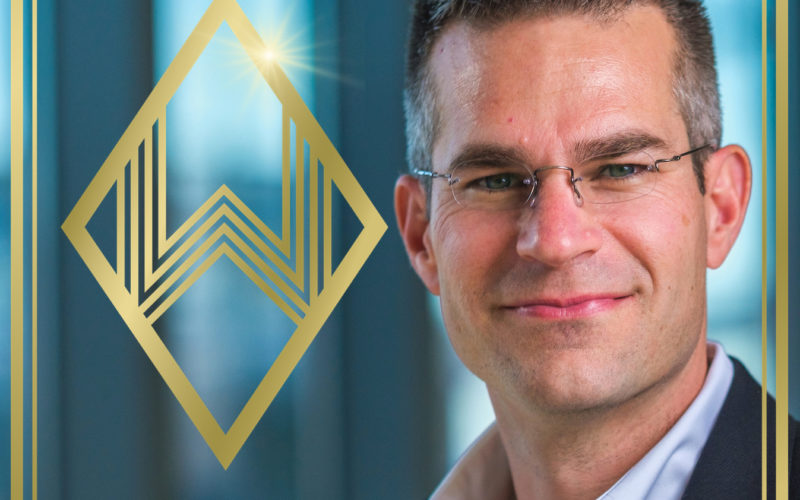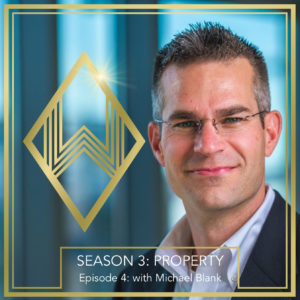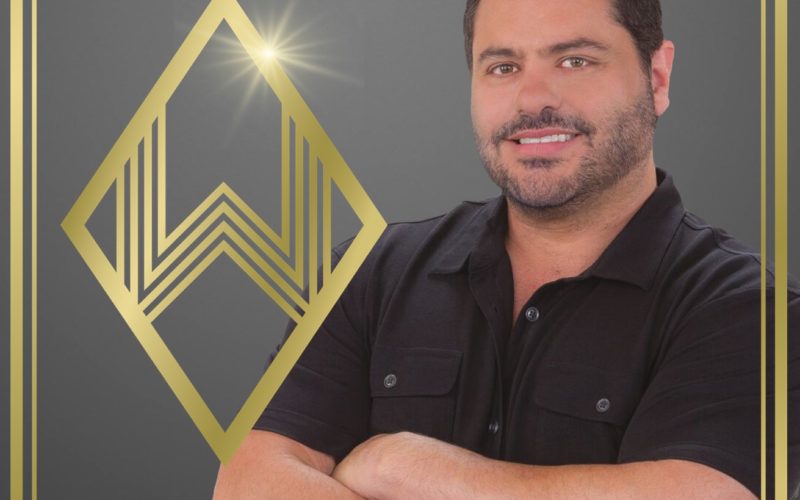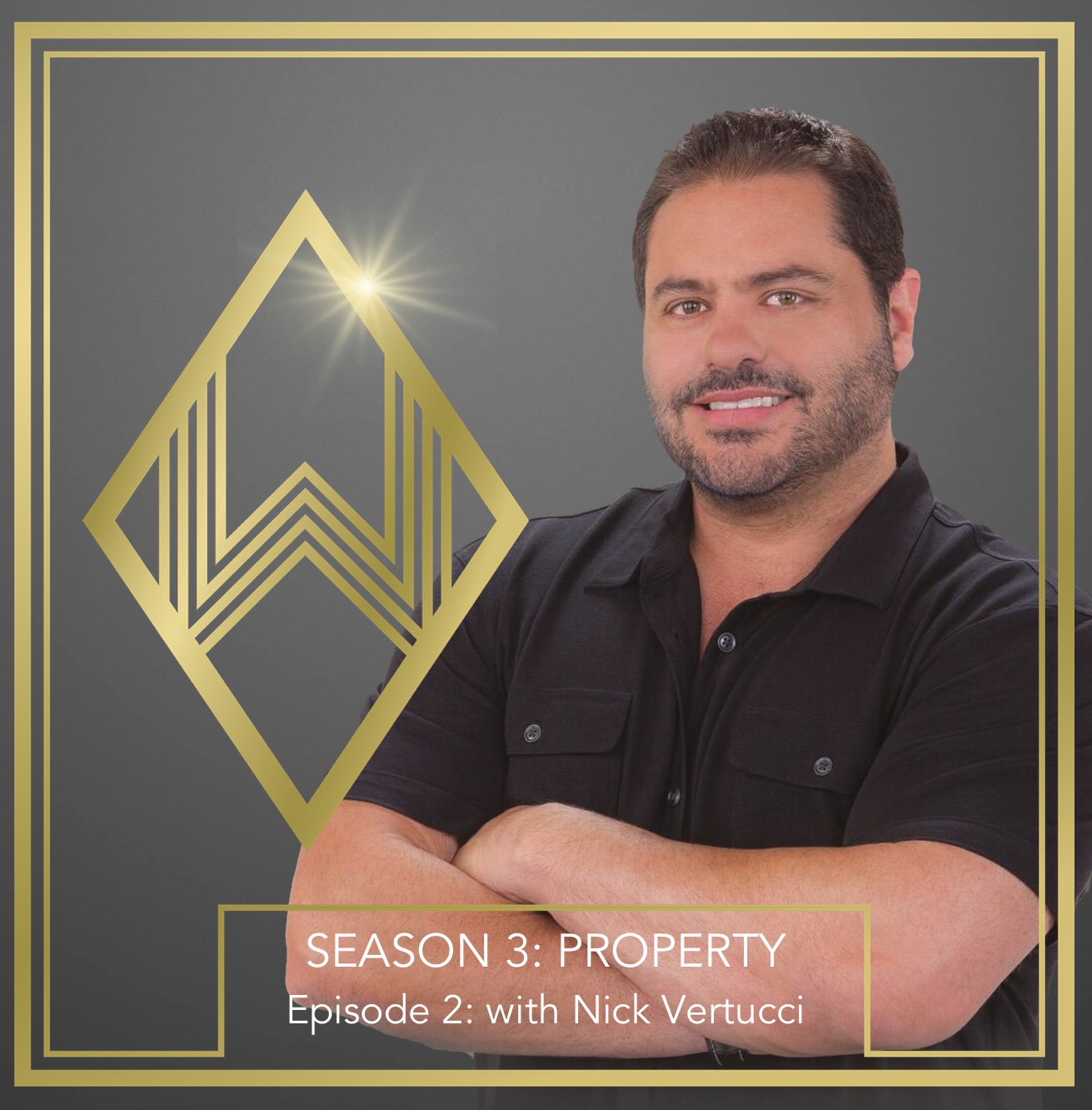The Rich Doctor: Creating Financial Freedom To Design The Life That You Want With Tom Burns, MD
Podcast: Play in new window | Download

Why don’t doctors get rich? It’s a baffling question considering how much hard work and service these individuals are putting in every day. And it’s not all about the money, even. Doctors do have a comfortable salary, but most fail to develop and design the life that they want simply because they have no time. Tired of being trapped by his own profession, sports doctor and orthopedic surgeon, Dr. Tom Burns started to look somewhere else to find a way to create that financial freedom he was looking for. After reading Robert Kiyosaki’s iconic, “Rich Dad, Poor Dad” (the very first copy, no less), he knew that the answer to his question is in real estate. Through a combination of hard work, luck and the right people to support him, Tom developed his own real estate portfolio that now provides him the financial means to do what he wants with his life. In his book, “Why Doctors Don’t Get Rich,” Tom shares his story and message with other doctors, creating the beginnings of a community of physicians who are passionate about creating wealth and freedom for themselves. Listen in as he joins Patrick Donohoe in this eye-opening discussion.
—
Watch the episode here:
Listen to the podcast here:
The Rich Doctor: Creating Financial Freedom To Design The Life That You Want With Tom Burns, MD
I have a guest that I’ve been looking forward to interviewing for quite some time. He wrote a book, which is called Why Doctors Don’t Get Rich: How YOU Can Create Freedom with Passive Income Investing. His name is Tom Burns. The first time I met Tom Burns, he was telling the story of how he purchased the very first copy of Rich Dad Poor Dad from a carwash owned by Keith Cunningham in Austin, Texas. He looked at the number on the back of the book when he was finished reading it. He called the number and lo and behold, Robert Kiyosaki himself picked up the phone. From there, they developed a relationship and it was awesome hearing that experience.
The next story I heard from Tom was when he was down in Southern Chile on a cruise. It was an icebreaker ship going toward Antarctica. This guy is an amazing guy and has incredible stories. You are going to love him. Tom is a physician. He started his adult life as a doctor. He’s trained in sports medicine as an orthopedic surgeon. He began his career in Austin, Texas and he continues to practice to this day. Along the way, Tom decided that he wanted an exceptional life and didn’t believe that a career as a doctor would check all of the boxes.
He wanted choice, freedom and time with his family. Through a series of events that included hard work, luck, loyal friends, great partners, patient educators and giving mentors, he developed a real estate portfolio that gave him the financial means to determine his ultimate future. Tom gets to live a pretty extraordinary life and he wanted to give back. He wrote this book. He is specifically focusing his attention on doctors, those in the medical career, which in 2020, they have had some challenging times.
It speaks to his experiences and what he did in order to achieve even more freedom. I hope you guys love the interview. Go pick up his book. You can go to RichDoctor.com in order to learn more about Tom. He has a newsletter and a blog. You can also go to Amazon and purchase his book. The audiobook will be coming out soon. It’s a great interview. I love talking to Tom. He’s such a good guy. I hope you enjoy it. We’ll see you in the next episode, until then.
—
It’s great to have an honored guest, a revered guest. His name is Tom Burns. As I mentioned, Tom, correct me if I’m wrong, but you purchased the first Rich Dad Poor Dad book ever.
I got lucky and picked up a good book. It happened to be the first one.
That fact alone says a lot about you. First off, how long ago that was, but also what you’ve done with your career and outside of your career. You have these dual careers in a sense as an entrepreneur investor and medical professional. It’s going to be awesome to interview you. When we first met, I don’t know but there’s something special about you. It’s something that I believe others could have benefited from. You took the plunge into the writing a book world. What was the experience like writing that book?
It was something. A friend of mine, the author of that book you mentioned, suggested that I write a book. I never wanted to shy away from a challenge. I said, “Okay.” I didn’t know what was going to happen. I started the process. People would ask me, “Who’s going to be your ghostwriter?” I didn’t have one. I’m a physician and sometimes a doctor’s disease is to do it yourself, but I had a specific reason I wanted to write every word in the book. I was writing to everybody, but directing the book at physicians, using them as an avatar for anybody that makes any kind of a paycheck.
I knew that my words would get through in one of the processes. What happened was I ended up growing because I wrote every word. I found out how to do it. I got editors to help. I learned a lot of terms and things that I hope to never have to remember now. It was a real blessing. It was because I learned a lot about myself and I was at first started writing a book. Somebody suggested to write a book. I’d never done it before. It sounded like a cool challenge.
Life is not all about money, but it’s a great tool to use to get the life that you want. Share on XWhat happened was I grew, changed and found out that the problem. I discovered a mission because in my world, in the physician world, there are a lot of unhappy, sad and trapped feeling physicians. Although the books written for anybody to learn about freedom, it was written to the doctors to try to help them because over 50% of them are unhappy. You and I, Patrick, when we get older, we would prefer to have a happy doctor taking care of us. It was a selfish reason I wrote the book.
As I did the research, I developed a website and developed some tools to help them. It has been a process. I’m still a tadpole in the evolutionary world trying to learn how to do this, but it was, it was great. I learned a lot about myself. I learned a lot about the world and learned a little bit about book writing. It was fun. It was a growth process and it was a blast.
I know that it has been months and months in the making, but what an iconic or serendipitous year to release a book like that. The medical world has been stretched in 2020, more so than probably any other year in memorable history. In 2020, I would say this statistic most likely has worsened as far as the medical world asking that internal question, is this worth all the decades of school and hundreds, millions of dollars in opportunity costs, but also tuition, school fees? You coming out with a book, Why Doctors Don’t Get Rich, it is somewhat of a wake-up call to them. You started down this path, but how would you characterize the theme of the book? What you want the medical world specifically to walk away from reading it? What do you want them to understand based on reading it?
I’ve had quotes from people. I felt trapped being a doctor. I didn’t know anything else was possible. I want it to be an instrument of guidance and hope to people that bring them a paycheck and feel like they’re trapped, particularly doctors. We know life’s not all money, but it’s a great tool to use to get what we want. There are certain ways to buy back your time, which is our most precious resource. A lot of physicians, a lot of people in the world don’t have time.
With some extra time, you can start to develop and design your own life. I want people to know that there is an option. It’s not for a special group of people. It’s not that difficult. Once you know the steps to buy back your time, create a little bit of even partial freedom. You take a little pressure off, life gets good and you start to smile a little bit more. The book is designed to give people guidance, hope and a bigger smile.
I know you speak to this in the book. The idea of freedom is it’s in your mind. It’s feeling, a sense of freedom because I know a lot out of people that have a financial amount of money that I would say anybody could consider being free if they had that sum of money, but they don’t feel like they’re free. When you felt that sense of freedom knowing that you didn’t have to perform surgeries, you didn’t have to work in the field that you were trained in, what was that like and how did it impact your work?
On the one hand, it was exhilarating and happened slowly. I wasn’t looking for it. I was doing my thing. All of a sudden, I realized one day, the money coming in from my passive vehicles has eclipsed my doctor’s income so that was exciting at first then it got confusing because what do you do? I wanted to make sure that I had a purpose. Freedom, money, it’s not everything you do. You do somewhat need to have a purpose. We all want to have some worth and a mission in life. It gave me the chance to sit back and see what I wanted to do with it. Selfishly, I traveled some, but then I started realizing that a little contribution to the world might be nice as well. I started looking for a mission and a purpose. It came like that. You can have the money to be free, but if you’ve got a bad home life or you’re unhealthy or your spirituality is compromised, it’s not freedom. It’s somebody with a lot of money.
Robert is the one that inspired this several years ago. He did a private education for a bunch of investors and talked about Maslow’s Hierarchy of Needs. There are these levels of Hierarchy of Needs, and most people get stuck in the self-esteem level where they achieve a lot. They go travel, they buy nice cars, they wear nice clothes. They eat at nice restaurants. It’s a Law of Diminishing Returns. The more that you pursue that, the less fulfilled you are. That’s where Maslow has his self-actualization level where it switches from satisfaction based on pleasing oneself to satisfaction coming from serving a purpose or a mission. Looking at this book, I imagine that was part of being able to offer and create value for those that you have empathy with. What has been your experience along the way, being able to give this gift to those that are in a similar situation as yourself?
It’s been a blast and that was part of that growth. I wanted to write the book to get the information out, then the mission developed. What you give, you get back ten folds. Now, I’m getting the opportunity to talk to people from all over the world and it’s been a blast. That mission has gotten deeper, broader and more focused in my life. It’s given me a great purpose. I’ve got a twenty-year plan to keep going. I hope to be doing something until I fall over and go to the next level. It’s been a pleasant surprise and it gives me a lot of fulfillment. I get to do things like this. I get to talk to good friends like this on Zoom. I’d rather do it live though.
Let me ask you a question around, I would say the information that medical professionals are exposed to with regards to finances because it’s a profession where there’s very little time. There are strenuous hours, plus there’s a lifestyle on top of that. The medical world in my experience at least has been the target of a lot of financial advertising. They’re pulled in all these different directions. When you look at the message you’re wanting to send, knowing that, how did you want to separate what you were trying to get across to this world that’s different than the typical advice that the medical world has given financially?
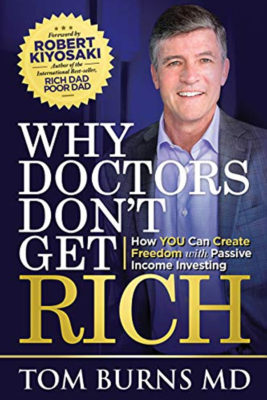
Why Doctors Don’t Get Rich: How YOU Can Create Freedom with Passive Income Investing
One, you mentioned the education. We rarely get any financial education although a lot of younger physicians now are taking some business courses. They’re doing combined MBA and medical programs. People are becoming more aware or medical professionals are becoming more aware. In my instance, I was a biology major and I took zero financial classes. That’s the one thing. They will get targeted for lack of a better word. Nobody feels sorry for physicians and you shouldn’t. We make a great income and it’s a great profession. It’s a fulfilling, wonderful profession. Everything’s perspective, but they get targeted by people. I’ve been in the meetings when nobody knew I was a physician and I’ve heard the person in the front of the room say, “If you don’t have a client list yet, go for the doctors. They’ve got money and they don’t understand what you’re talking about.” That’s a true story.
There’s a section in the book that talks about all the traditional ways to create investments or create money or passive income outside your profession. They’re not bad. There’s nothing wrong with them. Sometimes they are proposed or advertised as the only way. I want them to know there’s a lot of ways for them to create a lifestyle, to create the money and the funds to create their lifestyle. It’s not so much about money, but it’s about buying back that time. If you’re a physician, you have to go provide a service in order to get paid. That’s the way it works. When you have some funds come in that you slept to make or that you were on vacation, or you didn’t do anything to do, and that check shows up, it becomes a little bit addicting.
I want them to experience that feeling and have the time to do what they want to do in life. It can be research to cure cancer or it can be to quit medicine. It can be either end of the spectrum or spend a little extra time with your kids or get off a couple of hours early so that maybe you can pick your kids up from the bus when they come home from school. It’s things like that and the list is endless. That’s what I want them to know is that there are other options and that there is a life out there that is not the one that has been prescribed and advertised to you. We’re only here once and I want the journey to be magnificent.
I had seen this study where this year 2020 specifically has inspired a number of youths that are in school right now to want to pursue a medical career as a physician. I look at where most of that drive and motivation is coming from. It seems to be coming from wanting to make a difference, having a purpose wanting. In the medical world, a physician is so revered because they work on one of the most precious things that exist, which is that human life. They are remunerated highly because of that. There’s a lot of dedication, work and investment of time, energy, money that goes into developing that skillset. What have you seen as time goes on in the medical career where in the beginning, there’s that passion and drive? Does it stay the same? Does it diminish over the course of time? What is your experience collectively? Following up on that question, when you sensed that feeling of independence, how did that change the way in which you serve your clients or patients?
The answer to part one is like everything, it depends. I have partners. I’m still practicing medicine. I have seven partners and they all love what they do. They’re great at it. They’ve been in it a long time. It’s not that everybody’s unhappy. There are people that enjoy the service. If somebody gets in to serve, that may be mission and purpose enough, and they may or may not need anything extra. On the other hand, a Medscape survey shows that roughly 50% of the physicians in the United States have at one time or another been burned out. Burnout means at one time or another, they didn’t want to be a doctor. We don’t want that. That means to you and I, that at one point, every other doctor you see, wanted to not be in medicine at one point. It’s a balance like anything in life. Everybody has different opinions, different things that motivate them. What is exciting to me is there are still a lot of physicians out that are happy with what they do.
Question number two, I continue to enjoy it because it’s been a decade since I haven’t required the income for medicine. Your question is that I was able to enjoy it more on a base level. I could eliminate the things I didn’t like. We, doctors, sometimes we take call calls when you stay up all night and the operator answered the phone. I decided that was infringing on my family time. I stopped doing that. If the hospital has too many rules or whatever, I won’t go into details, but you can stop going there. You’re not there for the money.
I was able to lower the volumes I was seeing. I can spend five minutes with somebody or 45 minutes with somebody. It doesn’t affect my income. It doesn’t affect my life. I’ve developed friends by walking and saying, “I’m Tom Burns. I hear you have a sore knee.” Years later, we’re going on trips together or we’re friends. That’s a blessing. I get to meet twenty new people several times a week. It’s been a blast. It’s been fun. That’s what I wanted every physician to have that, to wake up and realize I get to go in and see patients, not I have to go in and see patients. It doesn’t happen for everybody, but it was life-changing. If it hadn’t been like that, I would have been out of medicine several years ago.
It’s the professional world that has a very similar challenge. At the same time the medical world, the amount of time, effort, energy and money that it takes to develop those skills and be in practice is extensive. It magnifies that principle of being able to educate yourself financially and then develop a strategy to get to the point where you are free. You are independent and you don’t have to do these things. You have a choice now. You didn’t have the choice before, but now the choice is, do I practice because I want to or do I practice because I have to? It’s a very interesting question that most people don’t get to ask themselves. At the same time, those in the medical field, because of the amount of money they’re able to make have that option more so than other professions.
When you have a choice in life, you’ve got freedom. It gives you the choice to decide what’s most important to you. What’s most important might be serving your clients or your patients or whatever your profession or your job is. Your most important thing in life might be to travel and see the world or to be the best parent in the world or the best spouse or the best sibling. Choice does give you the potential to have and design the life that fits you best and that gives you the most meaning and self-actualization, as Maslow would say.
Let’s do this as we conclude. You have an extension to your book, which is a website and some tools that you’ve mentioned. Would you take a moment to speak about the website that you’ve developed and the tools that are there and how those that are listening could take advantage of those?
Choice gives you the potential to design the life that fits you best. Share on XFor everybody out there, I’m transparent. I’m still learning how to do this stuff. I put a knee together but running a website’s been interesting. I wanted something to be useful. I wanted the book to be combined with a website that was a living, breathing organism. I have a blog that I put out and I find myself better on video. As time goes on, I’ll be having videos that have little lessons. They might be mindset lessons. They might be real estate lessons or money lessons. If you look at the book, the first half of the book is all about mindset.
Some of the how to do things is in the second half of the book. The website’s going to be the same type of thing. I’ll put out a blog that either deals with mindset or something concrete with action steps. I’ll put out some videos. I have a little section that will grow, that has some tools, things that I’ve used over time, that I developed to underwrite projects or to do some things like that. There are some spreadsheets and some resources. I encourage people to sign up and get the newsletter. It’s non-spammy. It comes about once or twice a month now. It’s usually got some helpful information. You can look at it or hit the delete button and it’s all there for help. It’s all there for you to grow and develop your own freedom.
Is the URL, the website just RichDoctor.com?
Yes. I’m the world’s worst marketer. You can go there and there’s a little sign-up sheet. It’s for everybody. I come from the doctor world and have maybe some credibility with them. You replace the word doctor in the book with your job, whatever it is, the principles are all the same. They’re all wealth and freedom-building principles.
Tom, thank you for sharing your wisdom. Thank you for writing the book. I saw how much it took and the number of revisions that you had to do. Did you end up doing the audiobook?
I haven’t yet. I’ve had a lot of requests for that so that’s step number next once I get the other mechanics of the website going and that’s about done. That’s probably the next project.
You had eyes on this book of some of the most reputable authors that are out there. It reads well. The information is compelling. It’s clear. I’d encourage anyone, regardless of whether you’re in the medical field to pick it up. Tom, any final words of wisdom or anything you’d like to leave the readers with?
I tell everybody, if you’re not growing, you’re stagnating and you’re going to wither away and die. I tell people that the $15 book is not going to change my life. I didn’t write this book to make money, but it might change your life. Whether it’s my book or your book, which is fabulous, anything. There’s always a little bit of information. You could learn something and then try to combine your education with a little bit of action. You’ll be surprised where it takes you. Life’s got a whole lot to offer and there’s a big world out there that is a lot of fun. I encourage everybody to use a little perspective and realize how much fun you can have and try not to be trapped. I don’t want people to be trapped and unhappy.
That’s one of the secrets of life is constant growth and improvement. I can’t remember what you called it. I call it the infinite horizon. What did you call it again?
It’s the second mountain.

Rich Doctor: Doctors need to educate themselves financially and develop a strategy to get to the point where they are free and they don’t have to do the things they don’t want to do.
It’s the infinite second mountain because the second mountain will lead to the third mountain, the fourth mountain. Once you have something that you’ve achieved, in order to have that fulfillment and that enjoyment of life, you have to continue to achieve these milestones.
That first mountain might be about acquisition. There’s a book called The Second Mountain by David Brooks. The first mountain is about acquisition, which we all get into when we start, but the second mountain is more about contribution. The third mountain, the fourth mountain, we always find more mountains to climb, more to contribute and more growth to achieve. That’s what keeps you young. It gives you purpose and makes life fun. It gives you a chance to do things like this.
I’m going to ask one more question. There’s a quote that I think about quite often. It’s, “The quality of life is in proportion to the quality of relationships.” I know that you have valued relationships more than anything else. You mentioned it with regards to some of your patients. You in the book, it’s very evident of all the different seminars, all the different meetup groups and associations that you’ve attended over the years. Speak maybe to the importance and value of relationships and how they’ve helped you develop over the course of time.
We’re pack animals. We love people. I love doing this with you right now. I’d rather be face-to-face. I’d rather we be in a group of 300 people as well. You and I go on a cruise together frequently. That’s fun for me. Often, I’ll go to seminars where maybe I could be teaching some of what’s going on, but I’m going there to see the people. Relationships, when you meet other people, everybody’s so diverse. Everybody has a talent and you can learn from other people or you can live through their experiences. That’s what life all about. It’s a giant world. It is a giant passion for mine. I have my core values and they are adventure, growth and connection. We talked about all that.
The connection is so important to me that I put it as my top three of my core values. I want to be with people. This is fun what we’re doing now. It’s fun to go connect with people. You will learn and grow, and your life will be better for it. Your life will be enriched by the experiences of others. I can’t encourage people more to keep up with connections and start with your family. Family connection is most important. Those are the people that count. Broaden your circle, it will make your life a beautiful thing.
I’ll end with this comment where our society is evolving to this place where relationships are the true value of life. We have been blessed with technology such as this video conference software whether it’s energy or transportation. This is a year of disruption, but it’s going to pass. The way in which society is evolving, it’s going to, in my opinion, decrease the efforts and what we’re going to have to do in order to maintain our lifestyle expenses. That’s where, again, going to the value that people seek sometimes is right in front of us, which is our relationships starting with our intimate relationships, going to kids and going to friends. It’s no longer going to be a choice where we’re going to have a lot more time on our hands as a society. The principle of satisfaction and fulfillment is right in front of us. It’s meeting new people. It’s enjoying time with the ones we love. You don’t have to wait until someday. That day could be now.
The best time to start is always yesterday and now is the next best time. Don’t let technology run your life. It’s great that we have this, but there are 7.5 billion of us. Let’s go out and meet some of them.
I can’t wait until we meet up face-to-face again. It’s been a few years. It was in Austin. It was summer of 2018. This is a year that has made us value those personal interactions even more so. I’m sure the next time will even be sweeter. Tom, thanks again.
Important Links:
- Why Doctors Don’t Get Rich: How YOU Can Create Freedom with Passive Income Investing
- Rich Dad Poor Dad
- RichDoctor.com
- The Second Mountain
Love the show? Subscribe, rate, review, and share!

